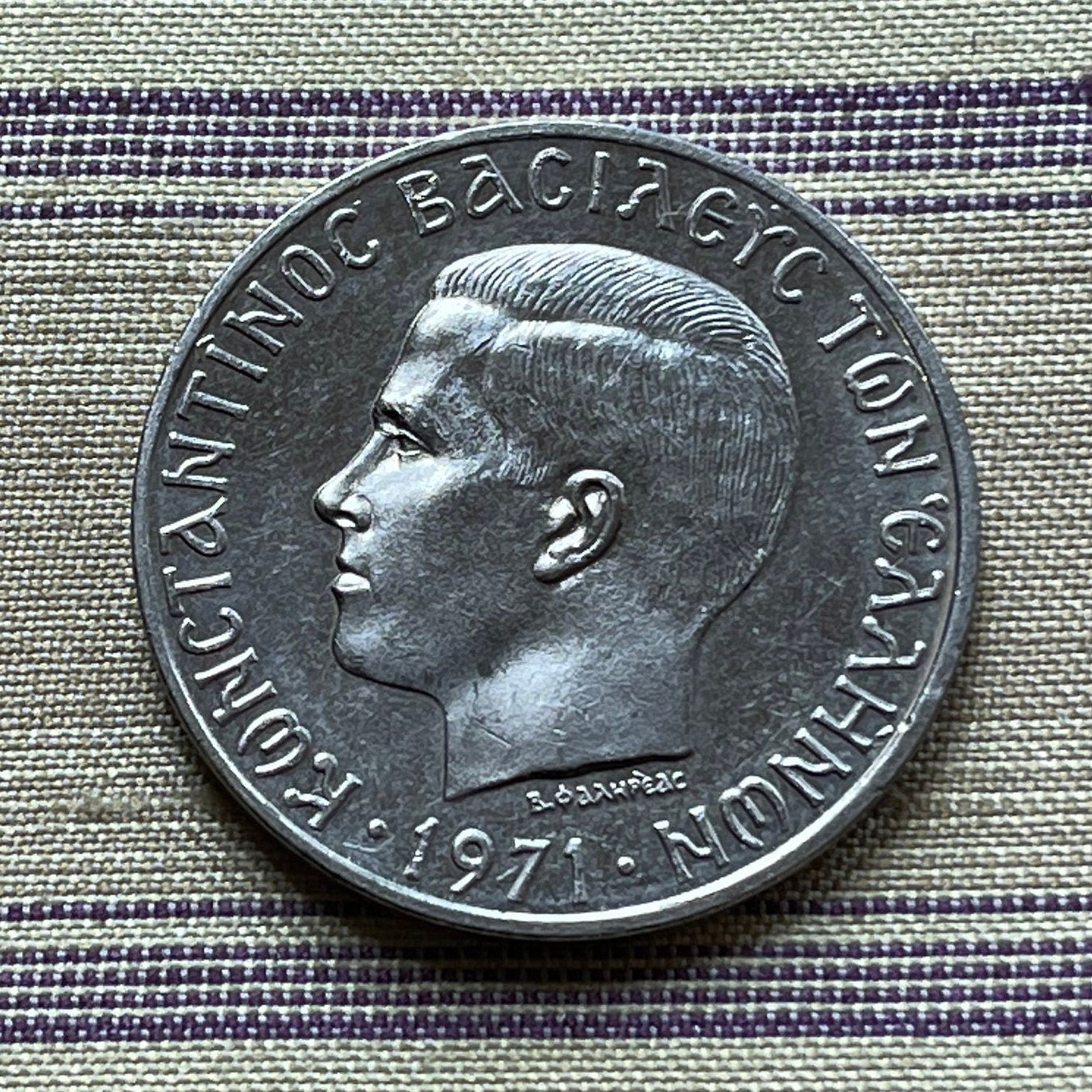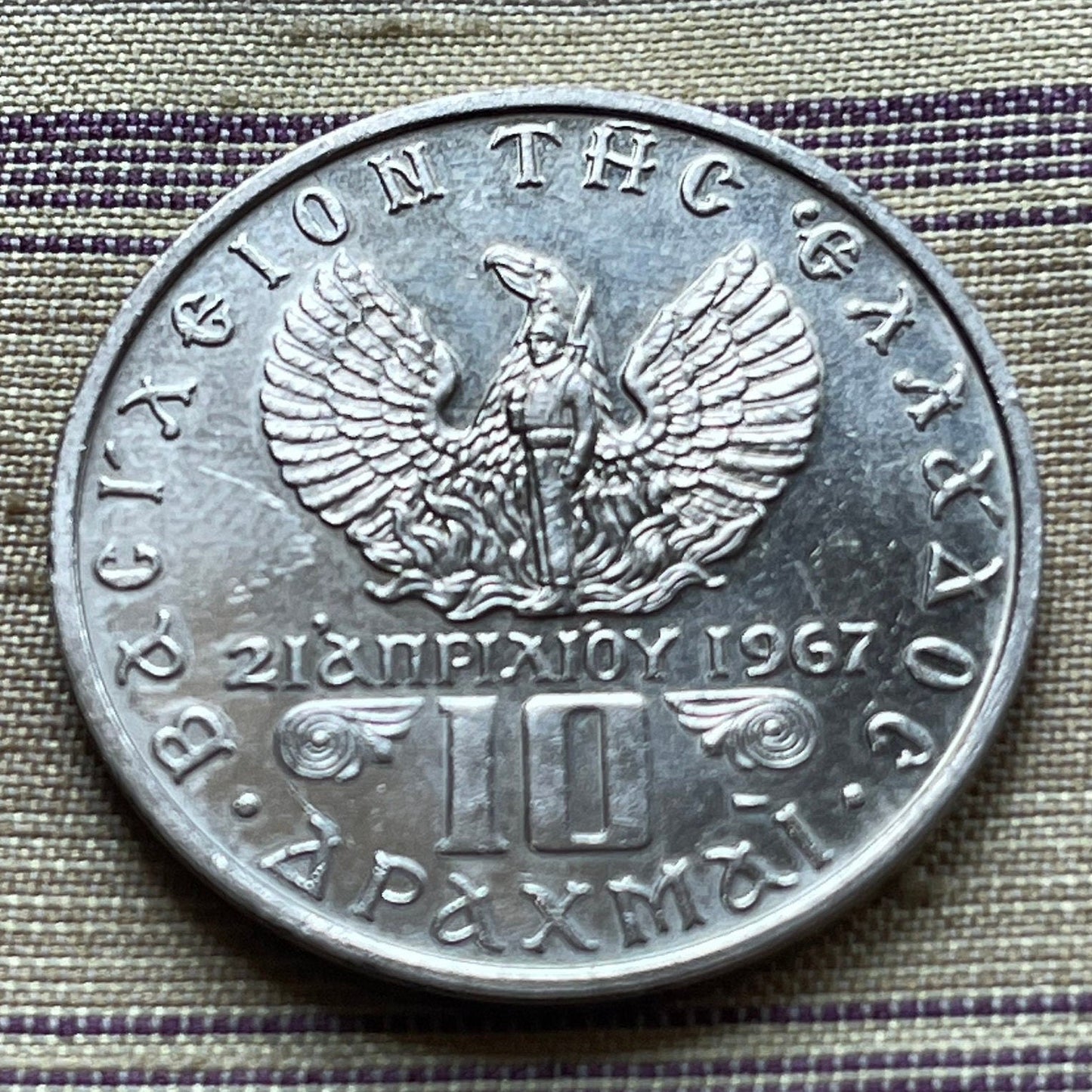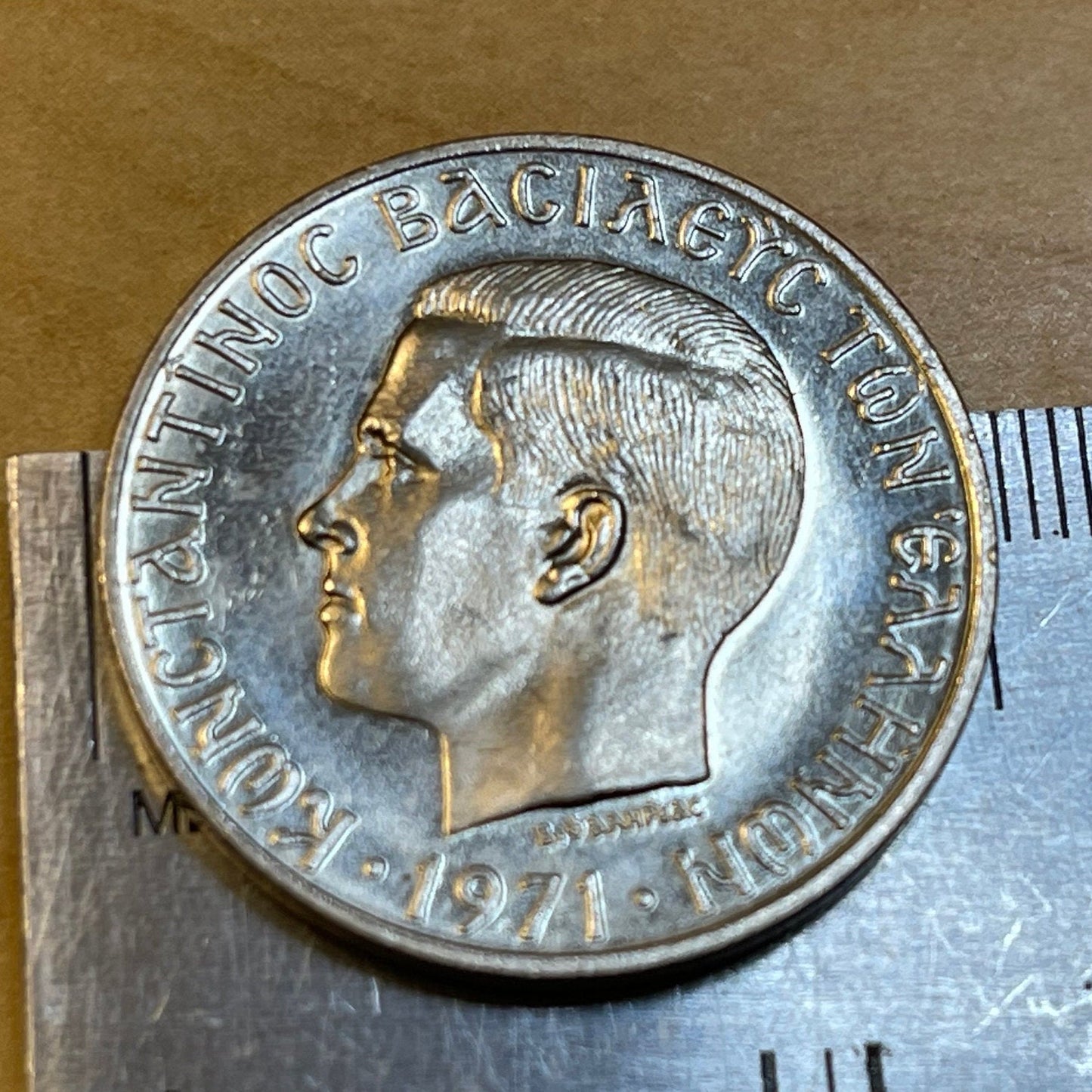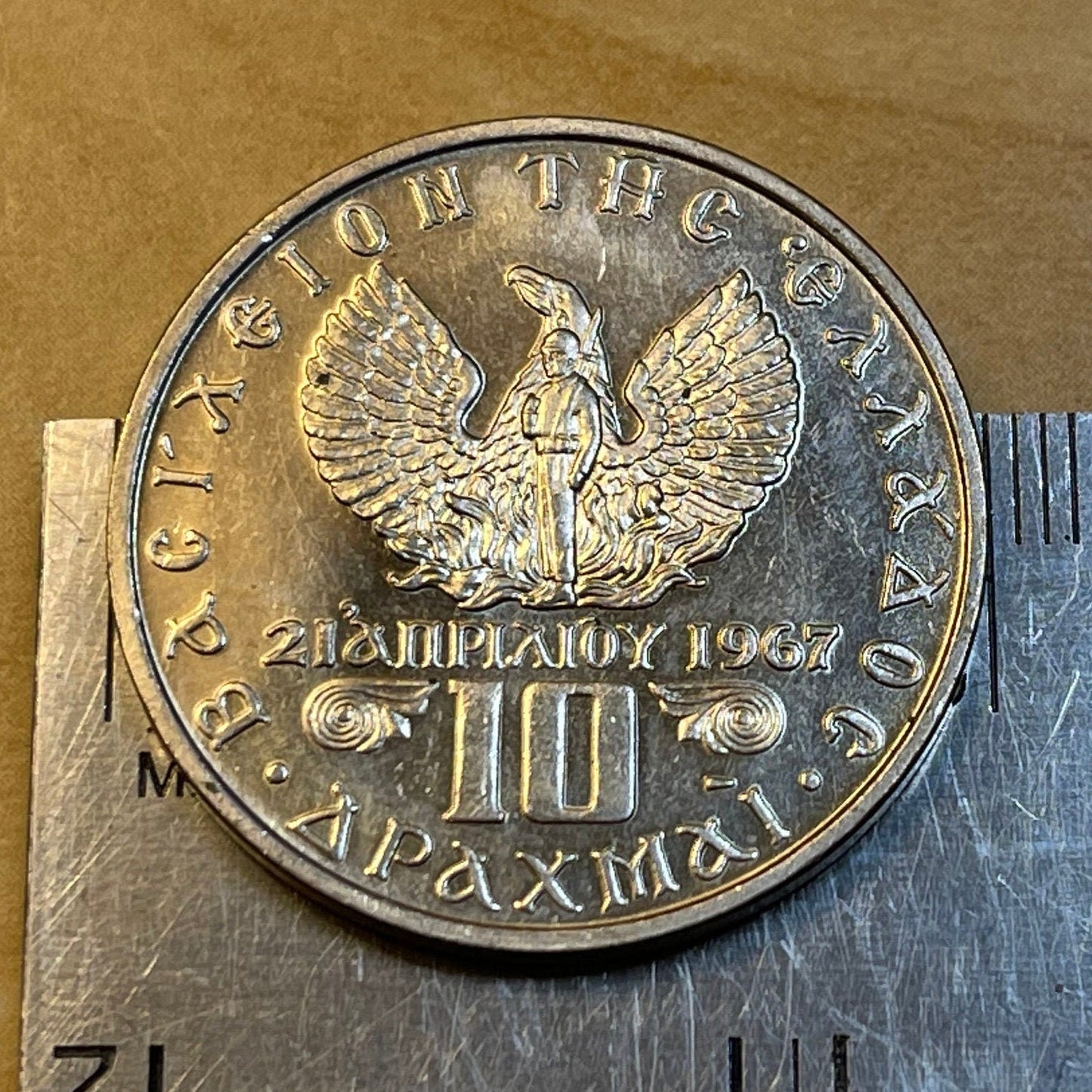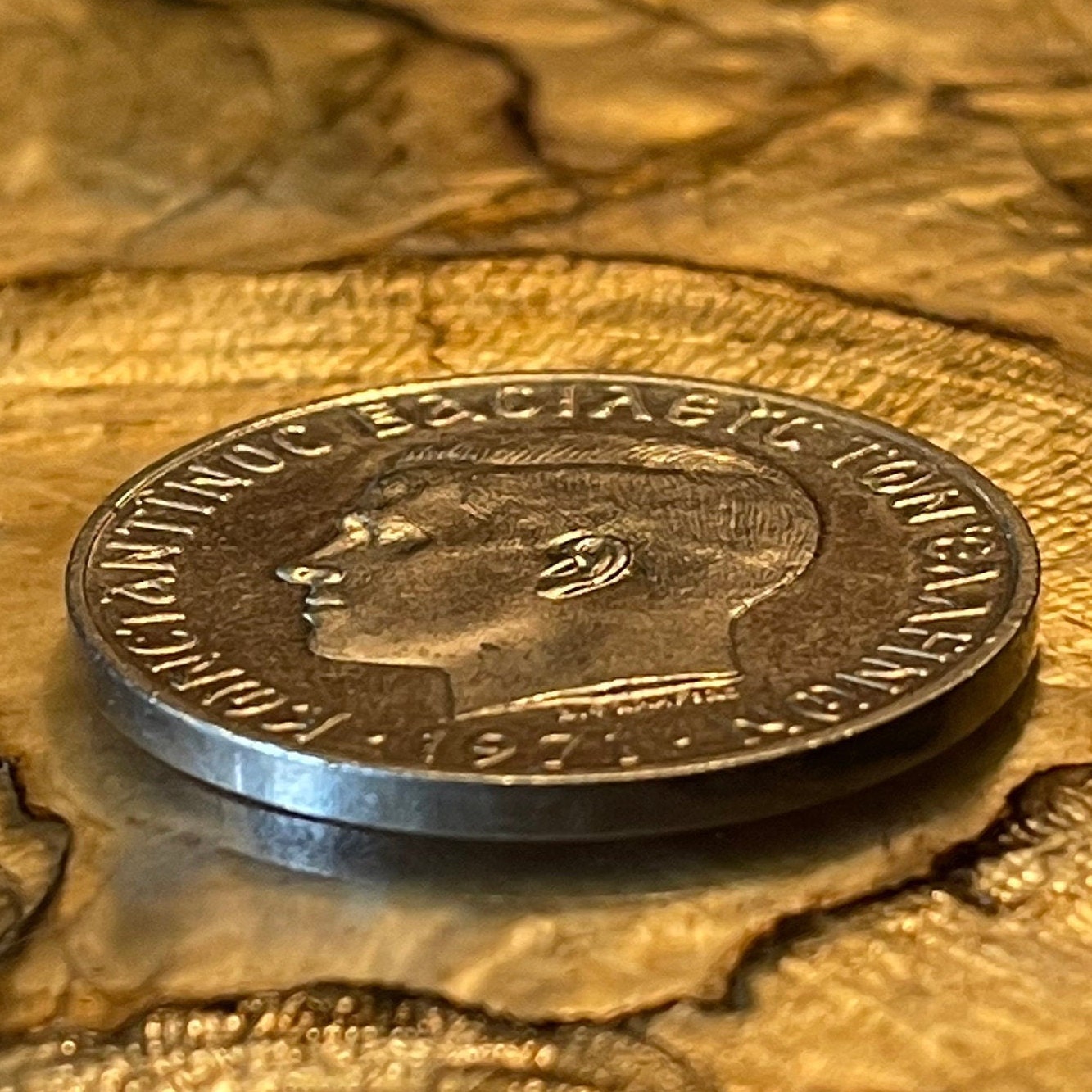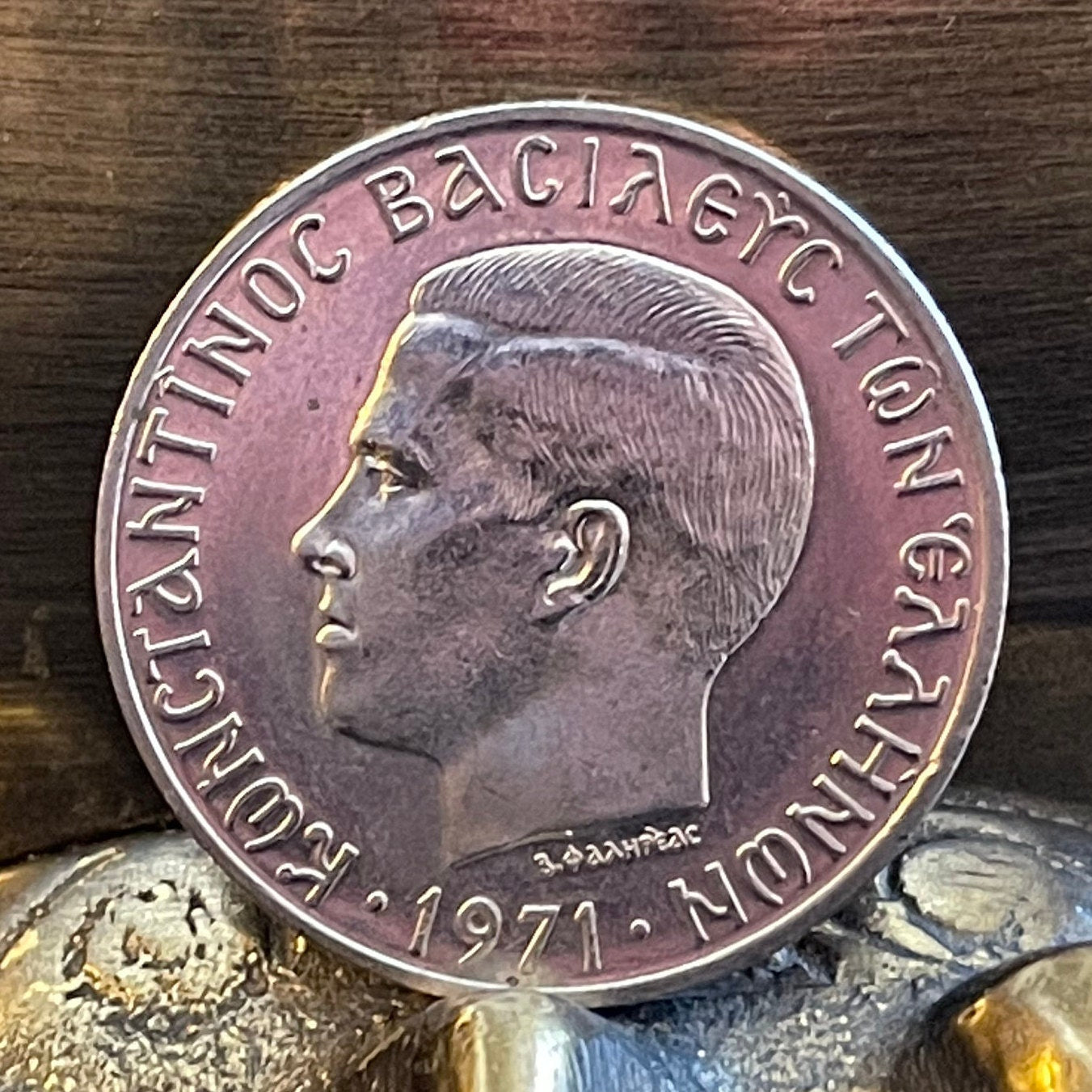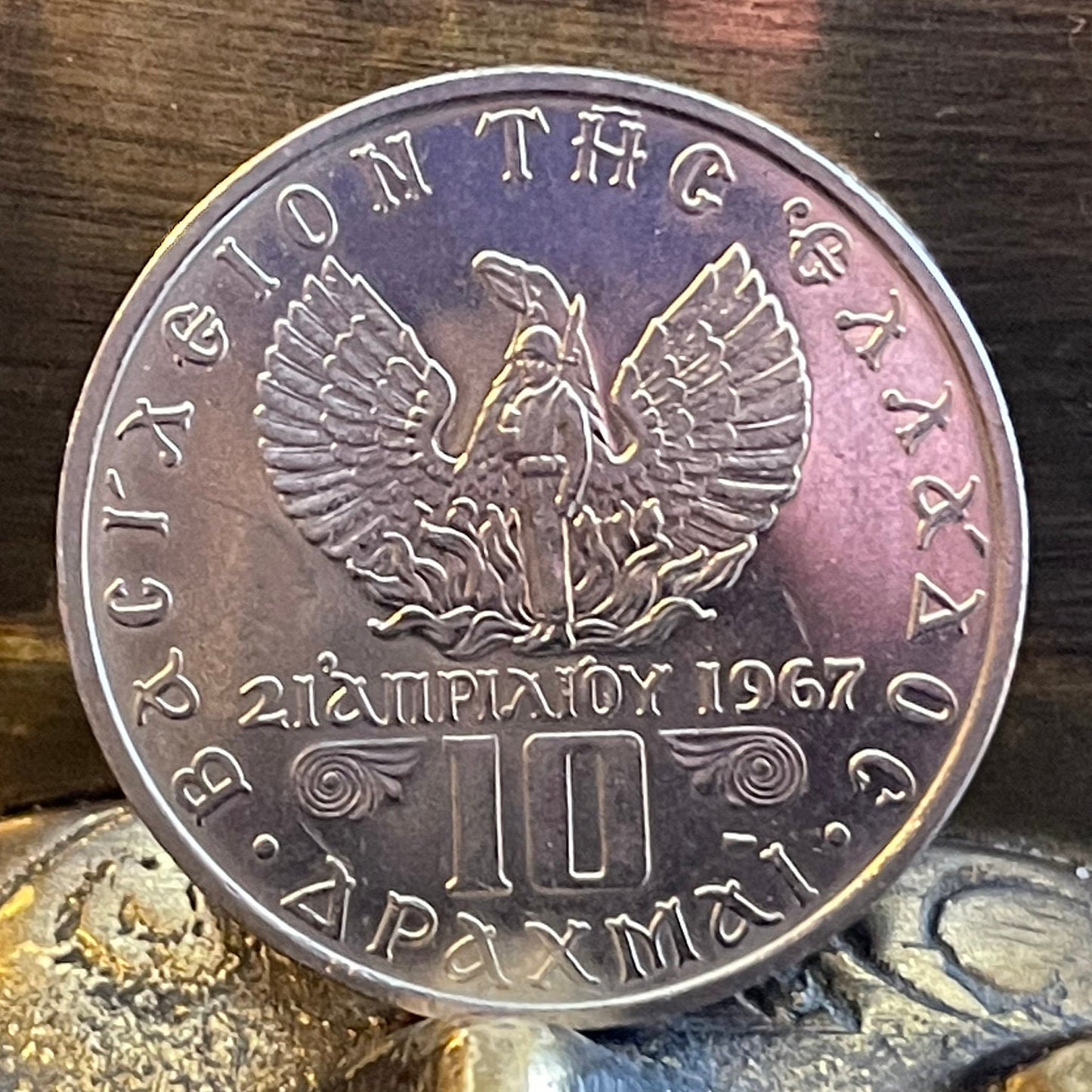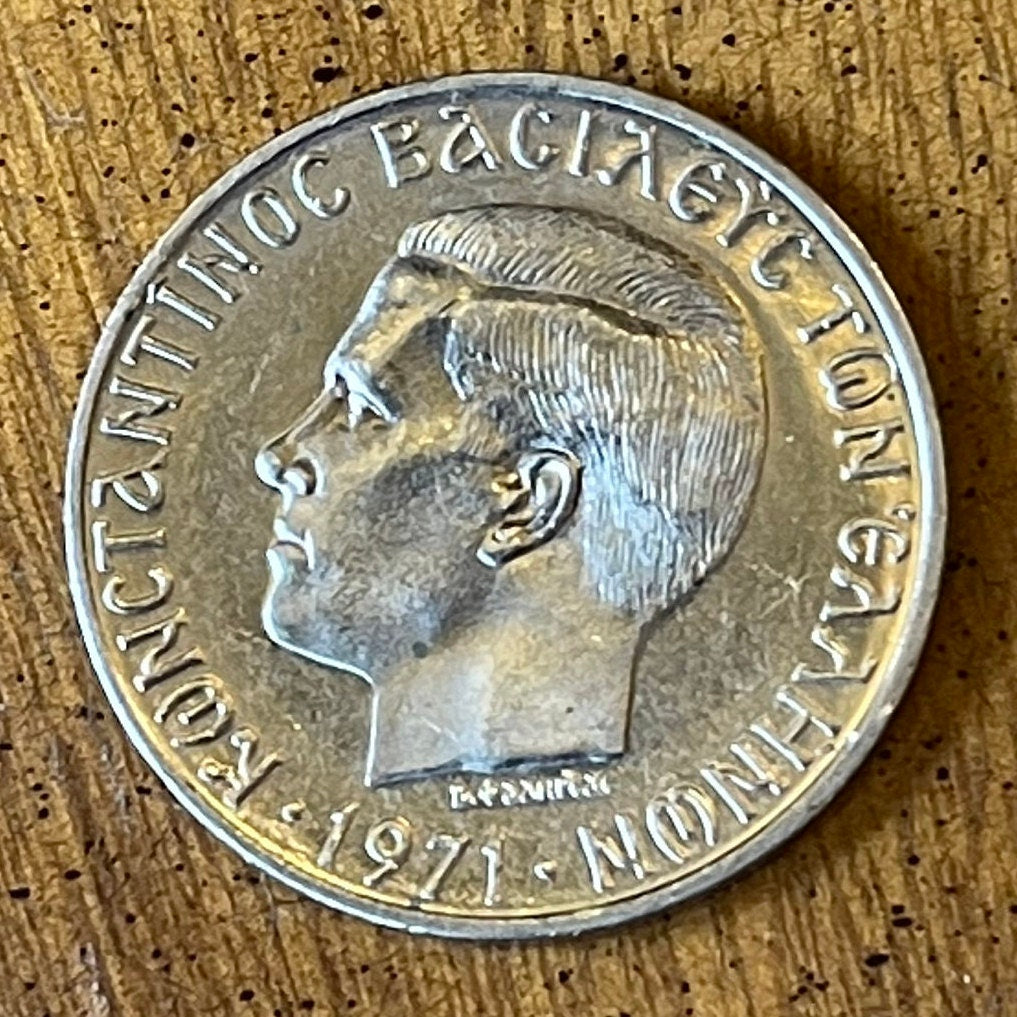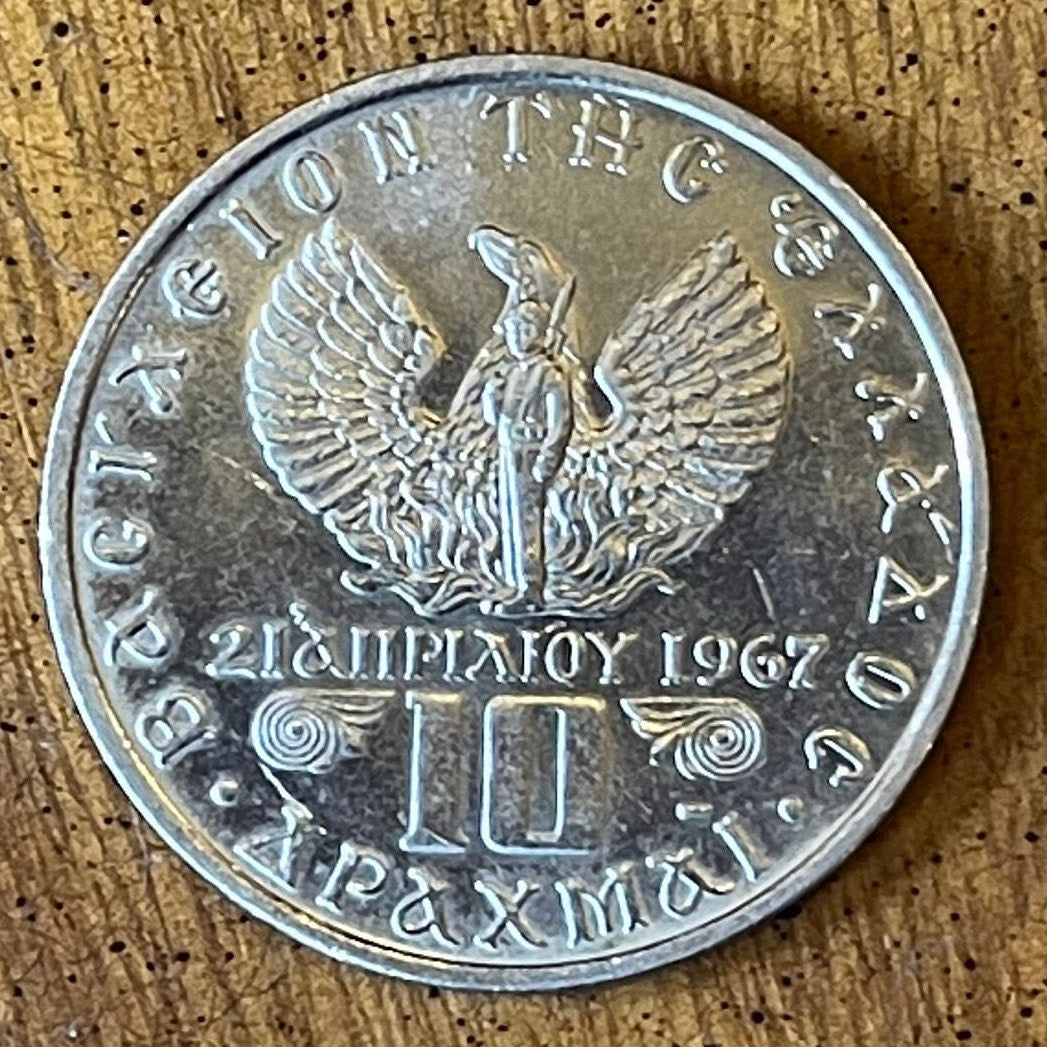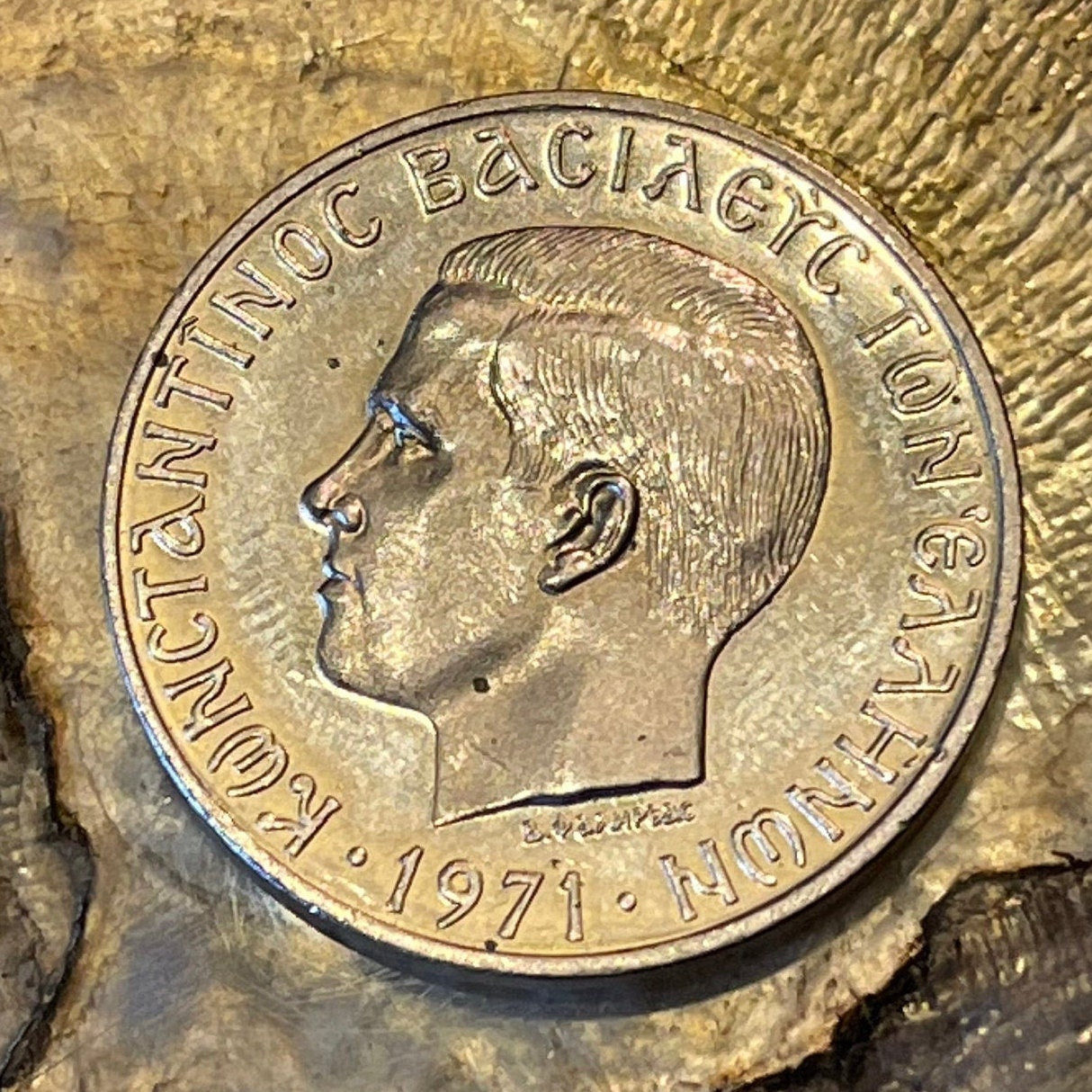elemintalshop
Greek King Constantine Coup d'Etat 10 Drachmai Greece Authentic Coin Money for Jewelry and Craft Making (Soldier & Phoenix)
Greek King Constantine Coup d'Etat 10 Drachmai Greece Authentic Coin Money for Jewelry and Craft Making (Soldier & Phoenix)
Couldn't load pickup availability
King Constantine & Coup d'Etat 10 Drachmai Greece Authentic Coin Charm for Jewelry and Craft Making
Commemorative issue: The Rebellion of 21 April 1967
Obverse: The portrait of Constantine II surrounded by the inscription "ΚΩΝΣΤΑΝΤΙΝΟΣ ΒΑΣΙΛΕΥΣ ΤΩΝ ΕΛΛΗΝΩΝ"
Lettering: ΚΩΝΣΤΑΝΤΙΝΟΣ ΒΑΣΙΛΕΥΣ ΤΩΝ ΕΛΛΗΝΩΝ
Translation: Constantine King of the Hellenes
Reverse: A Phoenix rising from its flames and the silhouette of the soldier bearing a rifle with fixed bayonet, the emblem of the Junta accompanied with the date of the rebellion and surrounded with the value and the inscription "ΒΑΣΙΛΕΙΟΝ ΤΗΣ ΕΛΛΑΔΟΣ" (Kingdom of Greece)
Lettering: 21 ΑΠΡΙΛΙΟΥ 1967 • 10 ΔΡΑΧΜΑΙ • Beta;ΑΣΙΛΕΙΟΝ ΤΗΣ ΕΛΛΑΔΟΣ
Features
Issuer Greece
Ruling authority Constantine II (1964-1973)
Regime of the Colonels (1967-1974)
Type Circulating commemorative coin
Years 1971-1973
Value 10 Drachmes (10 GRD)
Currency Third modern drachma (1954-2001)
Composition Copper-nickel
Weight 10.05 g
Diameter 29.9 mm
Thickness 1.95 mm
Shape Round
Orientation Coin alignment ↑↓
Demonetized Yes
Number N# 557
References KM# 101, Schön# 46
Wikipedia:
Constantine II (Greek: Κωνσταντίνος Βʹ, Konstantínos II, pronounced [ˌkonstanˈdinos]; born 2 June 1940) reigned as the King of Greece from 6 March 1964 until the abolition of the monarchy on 1 June 1973.
He acceded as king following the death of his father King Paul in March 1964. Later that year he married Princess Anne-Marie of Denmark with whom he eventually had five children. Although the accession of the young monarch was initially regarded auspiciously, his reign saw political instability that culminated in the Colonels' Coup of 21 April 1967. The coup left Constantine, as the head of state, little room to manoeuvre since he had no loyal military forces on which to rely. As a result, he reluctantly agreed to inaugurate the junta on the condition that it be made up largely of civilian ministers. On 13 December 1967, Constantine was forced to flee the country, following an unsuccessful countercoup against the junta. He remained (formally) the head of state in exile until the junta abolished the monarchy on 1 June 1973. The 1973 Greek republic referendum on 29 July, ratified the abolition. There were questions concerning the validity of this referendum and whether people were pressured to vote for a republic. Therefore a fresh referendum was held after the restoration of democracy in 1974. This second referendum was held after the fall of the junta as the 1974 Greek republic referendum on 8 December 1974 and confirmed the abolition of the monarchy and the establishment of the Third Hellenic Republic. Constantine, who was not allowed to return to Greece to campaign, accepted the results of the plebiscite.
Constantine is also a former competitive sailor and Olympian, winning a gold medal in the 1960 Rome Olympics in the Dragon class, and later serving on the International Olympic Committee.
***********
Wikipedia:
The Greek junta or Regime of the Colonels[a] was a far-right military junta that ruled Greece from 1967 to 1974. On 21 April 1967, a group of colonels overthrew the caretaker government a month before scheduled elections which Georgios Papandreou's Center Union was favored to win. The dictatorship was characterised by right-wing cultural policies, restrictions on civil liberties, and the imprisonment, torture, and exile of political opponents. An attempt to renew its support in a 1973 referendum on the monarchy and gradual democratisation was ended by another coup by hardliner Dimitrios Ioannidis. The junta's rule ended on 24 July 1974 under the pressure of the Turkish invasion of Cyprus, leading to the Metapolitefsi ("regime change") to democracy and the establishment of the Third Hellenic Republic.
Share
